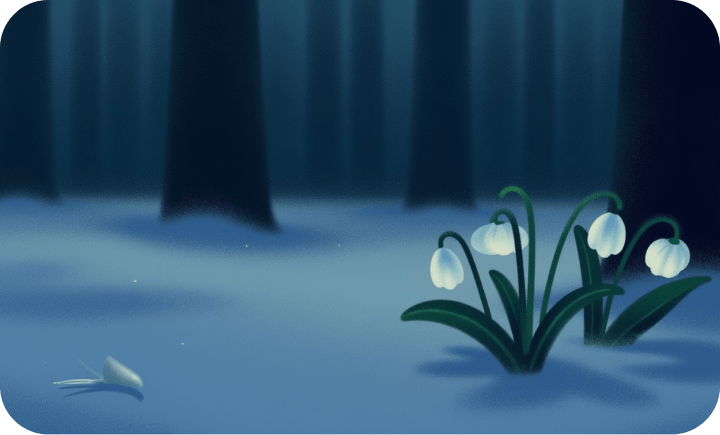
Warum du nicht allein auf Tarot vertrauen solltest
Warum du nicht allein auf Tarot vertrauen solltest
Warum du nicht allein auf Tarot vertrauen solltest


Tarot ist ein bedeutungsvolles Werkzeug zur Reflexion, Einsicht und Selbstentdeckung. Viele Menschen wenden sich an Tarot, um Gefühle zu erkunden, Ziele zu klären oder Übergänge zu bewältigen. Aber während Tarot kraftvoll sein kann, hat es auch Grenzen – und sich darauf als deinen einzigen Führer zu verlassen, kann mehr Verwirrung als Klarheit schaffen.
Wie jedes spirituelle oder introspektive Werkzeug ist Tarot am effektivsten, wenn es im Gleichgewicht mit Logik, realen Handlungen und Selbstbewusstsein verwendet wird. Dieser Artikel untersucht, warum es unklug ist, sich ausschließlich auf Tarot für Entscheidungen oder Richtung zu verlassen, und wie man es verantwortungsbewusst als Teil eines umfassenderen Unterstützungssystems nutzen kann.
Verstehen, was Tarot kann – und was nicht
Tarot arbeitet durch Symbole, Archetypen und Intuition. Es spiegelt wider, was in dir passiert, welche Energien vorhanden sind oder wie du eine Situation verarbeitest. Es kann Licht auf Möglichkeiten und Muster werfen, die vielleicht nicht sofort sichtbar sind. Aber Tarot tut nicht:
- Garantiert eine bestimmte Zukunft
- Ersetzt Fachwissen (wie medizinischen, rechtlichen oder finanziellen Rat)
- Trifft Entscheidungen für dich
- Kontrolliert die Handlungen anderer Menschen
Tarot hilft dir zu sehen, aber es entscheidet nicht. Das ist deine Aufgabe.
Das Risiko der Überabhängigkeit
1. Macht abgeben
Wenn du ständig auf Tarot schaust, um zu entscheiden, was du als Nächstes tun sollst – ob einen Job anzunehmen, eine Beziehung zu beginnen oder einen großen Schritt zu machen – riskierst du, deinen eigenen inneren Kompass zu schwächen. Je mehr du den Karten vertraust, desto weniger vertraust du dir selbst. Das kann zu einer Abhängigkeit führen, in der sich keine Entscheidung sicher anfühlt ohne eine Legung.
Im Laufe der Zeit untergräbt diese Abhängigkeit das Selbstvertrauen und lässt dich in einem Zyklus des Fragens ohne Handelns stecken.
2. Verantwortung vermeiden
Tarot zu verwenden, um Entscheidungen zu rechtfertigen oder zu verzögern, kann eine Form der Vermeidung sein. Wenn dir die Botschaft einer Legung nicht gefällt, könntest du continue pulling cards until you get a more favorable outcome ziehen. Oder du könntest eine Karte als Grund verwenden, das Schicksal zu blame rather than face a hard truth anstatt einer harten Wahrheit ins Auge zu sehen.
Auf diese Weise wird Tarot zu einer Ausrede statt zu einem Werkzeug zur Ermächtigung. Es ist wichtig zu beachten, dass die Karten Potenziale widerspiegeln – nicht Ergebnisse diktieren.
3. Verwirrung durch gemischte Botschaften
Zu viele Legungen, insbesondere zu demselben Thema, führen oft zu widersprüchlichen Antworten. Das schafft mehr Verwirrung, nicht weniger. Da Tarot interpretativ ist, ändern sich seine Bedeutungen je nach Frage, Denkweise des Lesers und Kontext. Wenn es ohne Grenzen verwendet wird, wird die Anleitung unklar, und die Angst steigt.
Manchmal bieten Stille und Geduld mehr Klarheit als wiederholtes Fragen.
4. Mangel an Handlung
Einsicht ohne Handlung ist nur die Hälfte des Prozesses. Tarot könnte auf neue Wege, Emotionen oder Lektionen hinweisen – aber wenn du keine realen Schritte in der physischen Welt unternimmst, ändert sich nichts. Es ist einfach, in die Falle zu tappen, nach Zeichen zu suchen und dabei Verpflichtung, Aufwand oder Risiko zu vermeiden.
Tarot ist ein Spiegel, kein Wegweiser. Es zeigt dir, was in dir ist und um dich herum. Du musst den Weg trotzdem selbst gehen.
Wie man Tarot als ausgewogenes Werkzeug nutzt
1. Verwende es zur Reflexion, nicht zur Orientierung
Bitte Tarot, dir zu helfen, deine Gefühle, Motivationen und Blockaden zu erkunden – nicht, dir zu sagen, was du tun sollst. Eine Frage wie „Was kann ich aus dieser Situation lernen?“ bietet mehr Tiefe als „Soll ich ja oder nein sagen?“
2. Kombiniere Tarot mit Logik und Planung
Wenn du eine Entscheidung triffst, ziehe die Einsichten von Tarot neben praktischen Faktoren in Betracht. Liste Vor- und Nachteile auf. Sprich mit vertrauenswürdigen Personen. Verwende Tarot, um blinde Flecken aufzudecken – nicht, um Strategie oder Vernunft zu ersetzen.
3. Respektiere seine Grenzen
Erwarte nicht, dass Tarot jede Frage beantwortet oder jeden Zweifel beseitigt. Wenn eine Legung unklar ist, zwinge sie nicht. Gib deinem eigenen Verständnis Zeit, sich zu entwickeln.
4. Wissen, wann man professionelle Hilfe suchen sollte
Tarot ist kein Ersatz für Therapie, Coaching, medizinischen Rat oder rechtliche Beratung. Wenn du mit etwas Ernstem oder Komplexem konfrontiert bist, verwende Tarot als emotionale Unterstützung – nicht als deine einzige Ressource.
5. Vertraue in deine Intuition
Tarot ist ein Werkzeug, kein Krücken. Lass es deine Reise unterstützen, dich wieder mit deiner eigenen inneren Weisheit zu verbinden. Je mehr du dir selbst vertraust, desto weniger wirst du das Bedürfnis verspüren, die Karten für jeden Schritt zu konsultieren.
Abschließende Gedanken
Tarot ist bedeutungsvoll, schön und kraftvoll – aber es ist nicht allmächtig. Wenn es mit Sorgfalt verwendet wird, kann es dir helfen, deine Gefühle zu verstehen, Perspektiven zu gewinnen und bewusste Entscheidungen zu treffen. Aber wenn es allein, ohne Gleichgewicht, verwendet wird, kann es das Urteilsvermögen trüben, das Wachstum verzögern und Angst fördern.
Der beste Weg, Tarot zu nutzen, besteht nicht darin, davon abhängig zu sein – sondern mit ihm zu partnern. Lass die Karten deine Wahrheit spiegeln, nicht deine Handlungsfähigkeit ersetzen. Indem du das tust, schaffst du Raum für echte Ermächtigung, wo Weisheit von innen kommt – und die Karten lediglich eine Stimme in einem größeren, weiseren Gespräch sind.




